SUMMARY
This is AI generated summarization, which may have errors. For context, always refer to the full article.
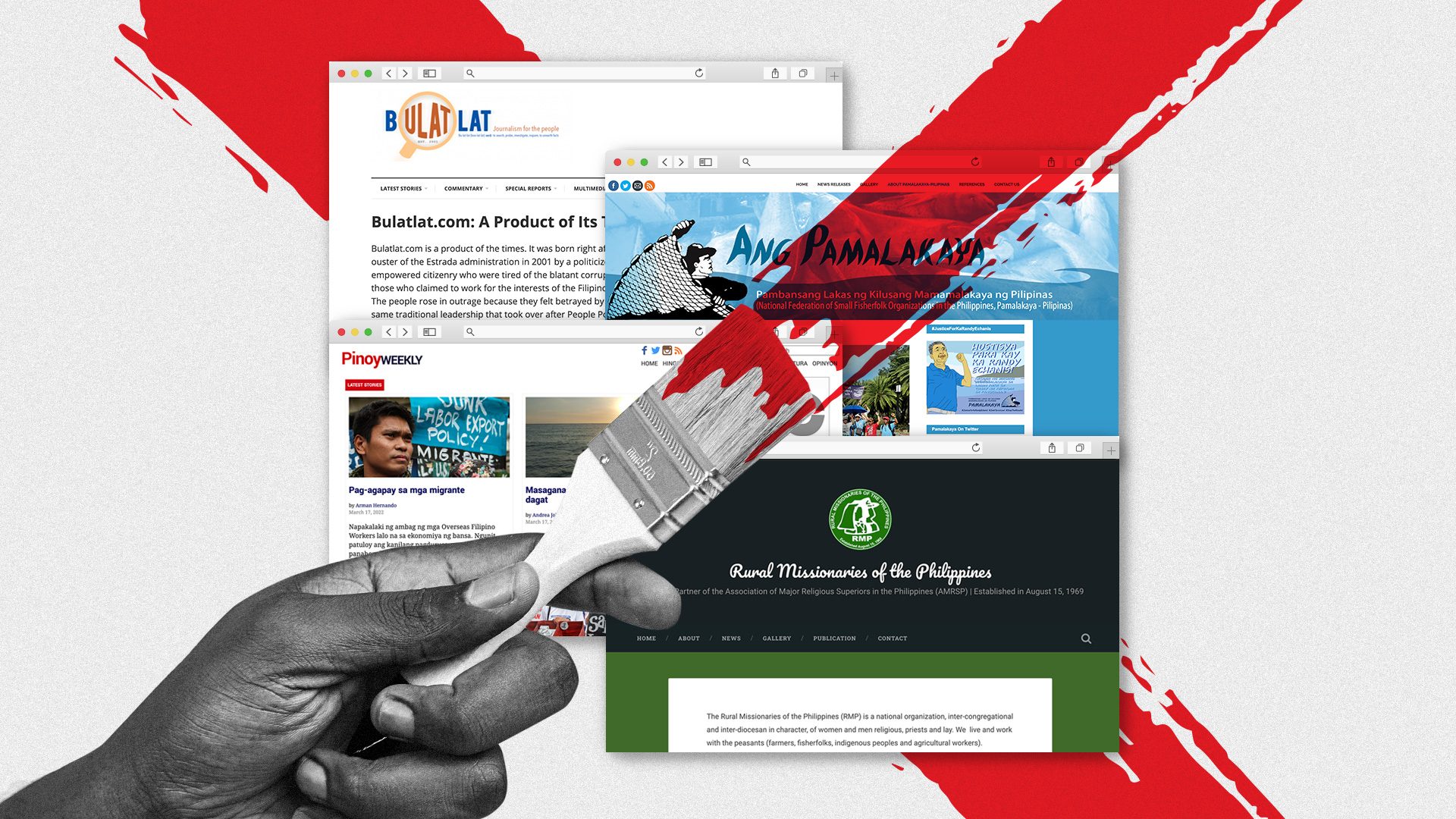
MANILA, Philippines – The content of majority of the websites blocked by the National Telecommunications Commission (NTC) in the Philippines raises questions about the basis – and goal – of the latest move by the Duterte administration.
A look at the list in the June 6, 2022 order of National Security Adviser Hermogenes Esperon Jr. shows that while there are websites that are explicitly linked to the Communist Party of the Philippines (CPP) and the National Democratic Front (NDF), the majority do not fall under this category.
At least two are alternative media outlets based in the Philippines while several websites are linked to long-time progressive groups in the country. The list even includes at least four websites run by foreign-based organizations or individuals focused on a broad range of issues affecting not just the Philippines, but several countries.
Bulatlat, Pinoy Weekly: Highlighting marginalized groups
The Philippine-based alternative media outlets blocked by NTC include Bulatlat and Pinoy Weekly.
Bulatlat, one of the leading alternative media outlets in the country, was established in 2001 as a response to the “blatant corruption by those who claimed to work for the interests of the Filipino people” in the aftermath of the Estrada administration.
Over the years it has published stories on pressing human rights issues in the Philippines, including land reform, indigenous peoples’ rights, and migrant welfare, among others, and have earned them several awards over the years. The outlet was a three-time finalist for the Jaime V. Ongpin Awards for Excellence in Journalism.
Bulatlat’s approach to stories is aligned with its goal to contribute to the “fight for truth and justice, freedom, against all forms of oppressions, and against abuse and misuse of power by the country’s top political leaders,” according to its website.
“For the past 21 years, Bulatlat has been committed to shedding light on issues that affect the marginalized and the oppressed,” the group said in a statement.
“These stories are often underreported or ignored by the dominant media mainly due to their owners’ economic and political interests,” it added.
In the past month, the news outlet released stories on the incoming Marcos presidency, the rising fuel prices and their impact on public utility vehicle drivers, and the plight of the farmers arrested in Hacienda Tinang in Tarlac, among others.
Pinoy Weekly, meanwhile, is an alternative newsmagazine that also publishes stories highlighting issues and perspectives of vulnerable sectors in the country. It was established as a print magazine in 2002 and eventually started its own website in 2008.
Aside from text stories, Pinoy Weekly also produces video explainers on issues that dominate the news cycle. The most recent episode of ALAB, or Alternatibong Balita, tackled the transportation crisis faced by both commuters and drivers, and the arrests of activists in the Philippines.
PinoyMedia Center, the publisher of Pinoy Weekly, tagged the move by NTC and Esperon as an “outright violation” of freedom of the press and expression, as well as an affront to the people’s right to information amid rampant disinformation in the country.
“Our mission to provide the public with alternative views on issues concerning the marginalized sectors will be hampered with such issuance,” it said in a statement.
Both Bulatlat and Pinoy Weekly have been subjected to Distributed Denial of Service (DDoS) attacks in recent years, especially in 2021, that sought to take down their respective websites. Sweden-based digital forensics nonprofit Qurium Media, in its report, said it found links to the Department of Science and Technology and the military in the DDoS attacks against Bulatlat.
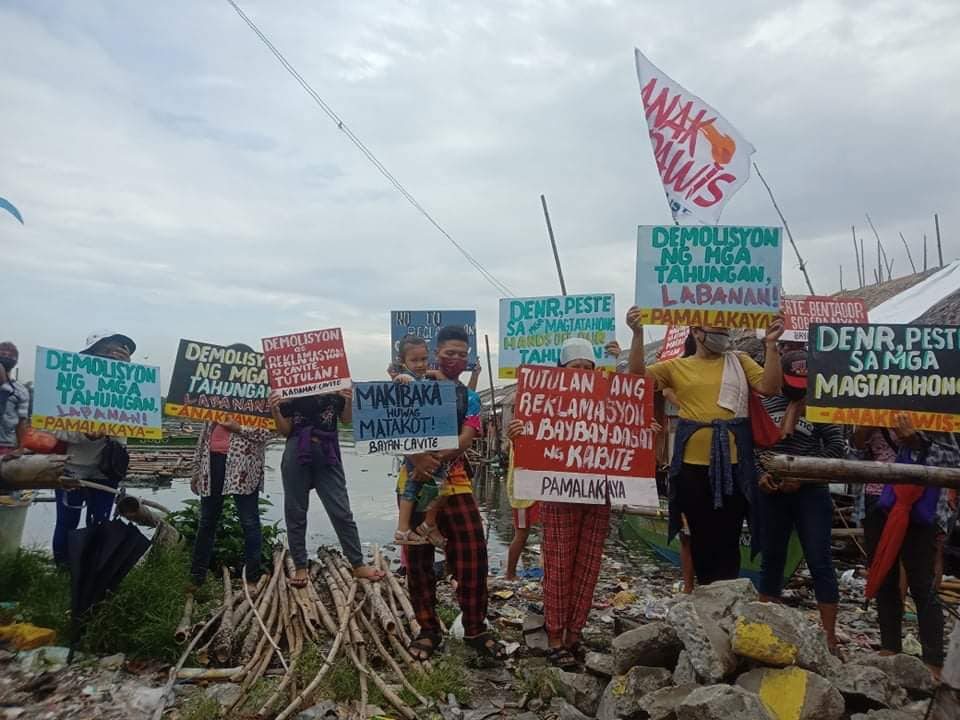
Latest attacks vs progressive groups
Other websites blocked by NTC are owned by progressive groups that have long been the target of threats, harassment, and legal actions by the Duterte administration under the guise of its anti-insurgency campaign.
BAYAN, one of the country’s veteran progressive groups, has consistently been red-tagged by Duterte and his allies. Its secretary-general Renato Reyes says the latest orders “show how arbitrary the use of terrorist-labelling and red-tagging have become.”
“No due process, no evidence, guilt by association,” he said on Twitter.
Save our Schools Network is a coalition composed of groups advocating for welfare of children and their right to education, including the establishment of alternative schools for the Lumad. The SOS Network also recorded attacks against Lumad schools under the Duterte administration, especially in the aftermath of threats from the President himself.
Pamalakaya, meanwhile, is a group that has extensively documented the plight of fisherfolk, who belong to one of the poorest sectors in the Philippines. In recent years, it has called on the government to respond appropriately against reported harassment of Filipinos by Chinese fishing vessels.
The Rural Missionaries of the Philippines (RMP) is a church-based national organization and counts priests and lay persons as members. It was created in 1969 and has since worked to empower farmers, fisherfolk, and indigenous peoples. RMP is one of the mission partners of the Association of Major Religious Superiors in the Philippines, one of the groups that filed a petition against the anti-terror law before the Supreme Court.
AMIHAN women, a federation of peasant women organizations, called out the Duterte government for its misplaced priorities amid more pressing issues Filipinos are facing.
“Nakakagalit na sa panahon ng krisis sa pagkain, halos linggo-linggong pagtaas ng presyo ng gasolina at pagtaas ng presyo ng mga pangunahing bilihin, pinili ng gobyernong ito na supilin ang mga organisasyong nananawagan ng kagyat at kongkretong tugon sa umiiral na sosyo-ekonomikong krisis,” Amihan national chairperson Zenaida Soriano said in a statement.
(It’s frustrating that at a time when there is a food crisis and almost weekly rising prices of fuel and food, the government chose to further repress organizations that call for concrete actions to help the country face this socioeconomic crisis.)
Foreign-focused? Defunct?
What is also surprising about the list of websites ordered blocked by Esperon is the inclusion of at least four that are linked to foreign-based organizations that do not just release publications specific to the Philippines, but a broad range of topics. These are Counter Punch, International Action Center, Monthly Review, and People’s March.
Counter Punch describes itself as a publisher of articles with “an independent left-leaning perspective.” An archived version of its About Us page shows that it is based in California, United States, and has “published newsletter and magazine from 1993 to 2020.”
Monthly Review, meanwhile, is based in New York, also in the US, and has been in circulation since 1949. Its website states that it is an “independent socialist magazine,” that has ever since “spoken for a critical but spirited socialism, independent of any political organization.”
“In an era of Cold War repression, the magazine published pioneering analyses of political economy, imperialism, and Third World struggles, drawing on the rich legacy of Marxist thought without being bound to any narrow view or party line,” the website’s About page says.
One of its first published articles, in fact, was written by scientist Albert Einstein. It also published articles by socialist professor and former vice presidential candidate Walden Bello, and other Filipino scholars.
The International Action Center, established in 1992, describes itself as an “anti-capitalist and anti-imperialist” grassroots organization in the US. A sidebar in its website shows that it focuses on “information, activism & resistance to [US] militarism, war & corporate greed, linking with struggles against racism & oppression within the [US].”
People’s March, meanwhile, appears to be owned by a group based in Kerala, India that claims to be the “voice of the Indian Revolution.” A look at its website shows that it may have long been inactive. Its last post was published in 2008, or 14 years ago.
The content of these websites, especially those linked to organizations clearly not designated as terrorists by the government's anti-terror council, begs not just the question about the basis of the move, but also its objective.
Human Rights Watch deputy Asia director Phil Robertson said the latest move by the Duterte government "is nothing less than a brazen attempt to undermine...and censor media outlets and groups."
"What’s astonishing is how easily the government escalates its defamatory rhetoric, moving from red-tagging them to classifying them as terrorists, in effect terrorist-tagging them," he said.
"But the bottom line is the [Duterte administration] has offered no solid evidence whatsoever to back up its claims that these groups work with the communists, let alone are preparing to bear arms against the government," it added. – Rappler.com
Add a comment
How does this make you feel?
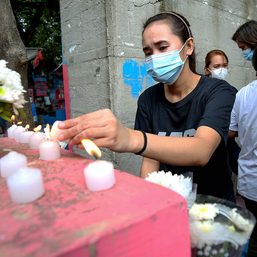
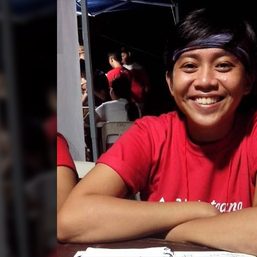

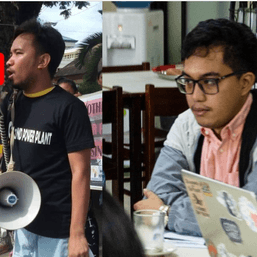
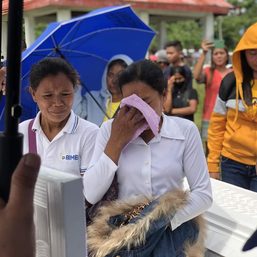
There are no comments yet. Add your comment to start the conversation.